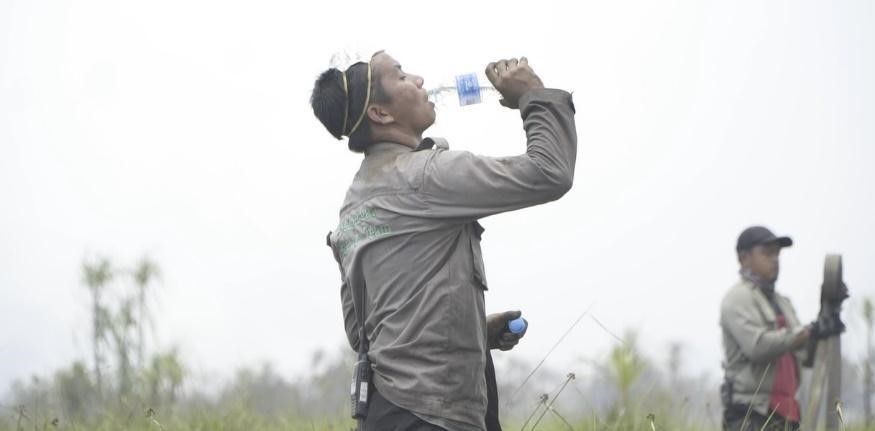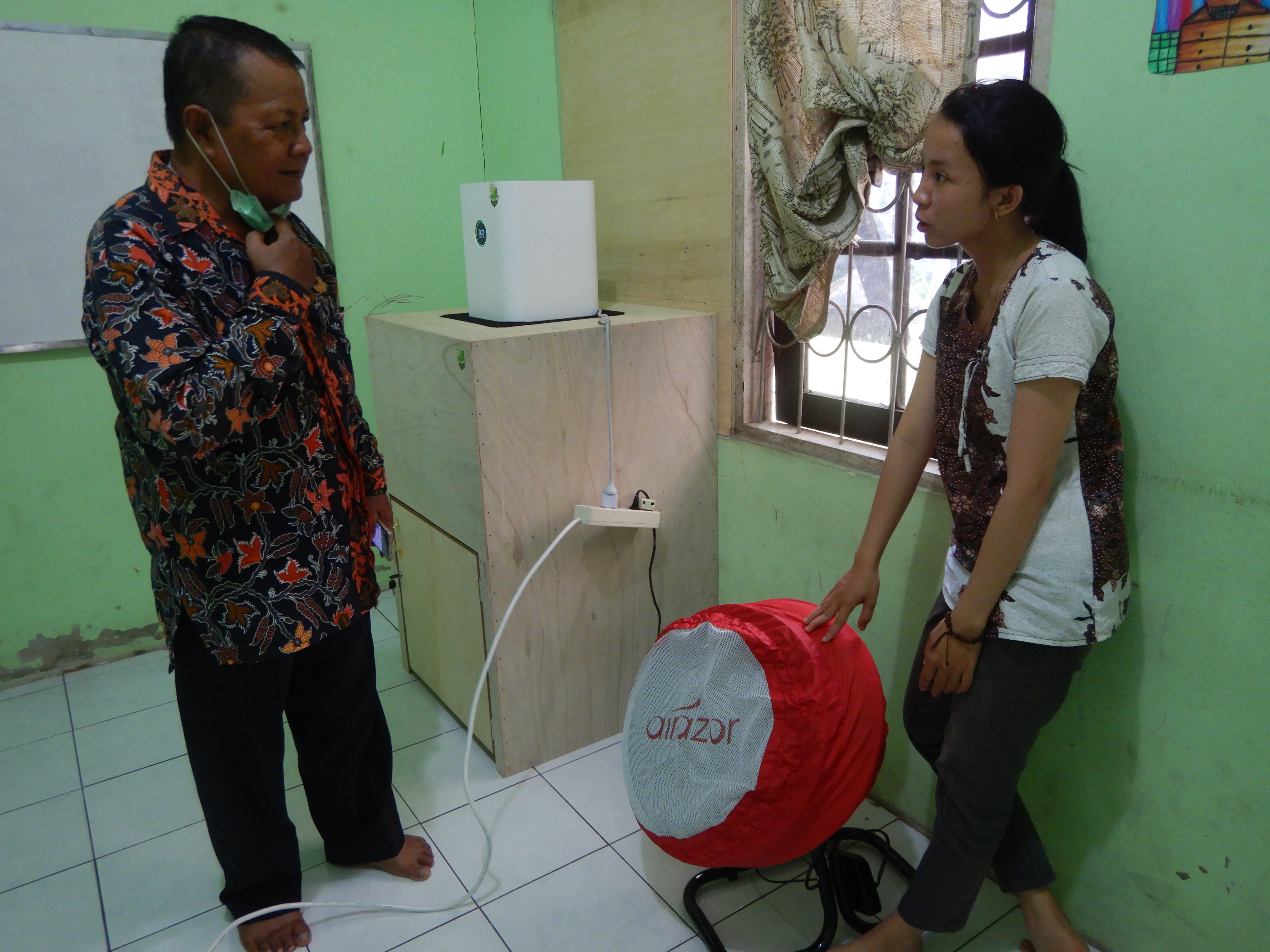The thick white-gray haze obstructed our vision on the way to the charred peatlands where the smoke was coming from. It had been five months since an emergency was declared in Central Kalimantan.
Forest fires are a common occurrence for communities across parts of Sumatra and Kalimantan, especially during the dry season. The fires typically occur as a result of slash and burn practices to clear land for palm oil or pulpwood plantations. These areas are also usually on peatlands, and peat fires are particularly difficult to extinguish because they can be as deep as 5 metres.
"We are used to living in conditions like this, although sometimes we feel breathless, but what can we do?", said Dedi, who has lived in Palangkaraya, Central Kalimantan his whole life. Dedi is one of the residents in Palangkaraya who received the N95 masks distributed as part of Kopernik’s emergency response through a partnership with Ranu Wellum Foundation and the Borneo Nature Foundation, supported by the Traveloka Tanggap initiative.
The haze has gravely affected the daily lives of residents across Palangkaraya, from those living near the small roundabout at the heart of the city all the way to the outskirts where a mass of burning peatlands was still in flames. We partnered with Ranu Wellum Foundation, a community organization that focuses on the conservation of Kalimantan's forests based on indigenous Dayak wisdom, which has been quick and tireless in their response and support for communities in Central Kalimantan.
People breathing in the toxic haze are at risk of developing respiratory illness from the exposure to high levels of unhealthy particulate matter with a diameter of 2.5 microns (PM2.5) or less. While surgical masks are commonly used, they are not sufficient to protect people from the haze.

Masks distribution to communities in Kalampangan Hamlet in Palangkaraya, Central Kalimantan
(Photo credit: Hadohoan Simaremare/Kopernik)
As we distributed the masks, we also provided communities with information related to haze protection and forest fires, increasing public awareness of issue. It is not just about distribution, but also education. Until now, 13,504 masks have been distributed to people in 26 communities across Palangkaraya.
We also supported several haze-safe shelters in Kalimantan by providing oxygen cylinders and air purifiers. We distributed Air Razor and Xiaomi Air Purifier technology, which have been tested and shown to reduce PM2.5 levels by up to 90 percent during trials. While the air purifiers are highly effective in clearing out toxic air, they are also quite costly. In finding an alternative solution for communities to protect themselves against haze, we are also testing a self-assembled and locally sourced air purifier unit to create haze-safe classrooms for schools in Palangkaraya, Central Kalimantan and Pontianak, West Kalimantan.
Sumarni from Ranu Welum Foundation explaining about the haze shelter at Candra Kirana community school in Palangkaraya, Central Kalimantan (Photo credit: Hadohoan Simaremare/Kopernik)
Elsewhere in Palangkaraya, a team of community firefighters supported by the Borneo Nature Foundation has been fighting fires around the Sabangau National Park peat forest area. Extinguishing fires in peat forests is certainly not as easy as putting out typical fires. To reach the hotspot, extra energy is required to navigate the peat swamps, carry the equipment, and to fight the fires. . Late at night, the team from Borneo Nature Foundation would go to the hotspot to ensure they would not spread to other places.
Together with the Borneo Nature Foundation, we have been supporting a team of community firefighters by providing them with safety boots, appropriate clothing, pumps, fire hoses, headlamps, mats, boat rental, as well as other equipment they need.

Hendri from the fire fighting team is quenching his thirst in the midst of fire fighting (Photo credit: Borneo Nature Foundation)
Borneo Nature Foundation is well-known for their efforts to protect the forests of Kalimantan, including environmental education for children, conservation-based research and empowering local communities. The collaboration between Ranu Welum Foundation, the Borneo Nature Foundation, and the Traveloka Tanggap is just one example of how organizations can collectively work towards a shared goal. In this case, it was to support communities to get through the haze season. To achieve this, it was important for Kopernik that we work with knowledgeable partners with strong local connections who share the same vision and mission.
Collaborating with the right partners is certainly a key step in addressing major challenges.



